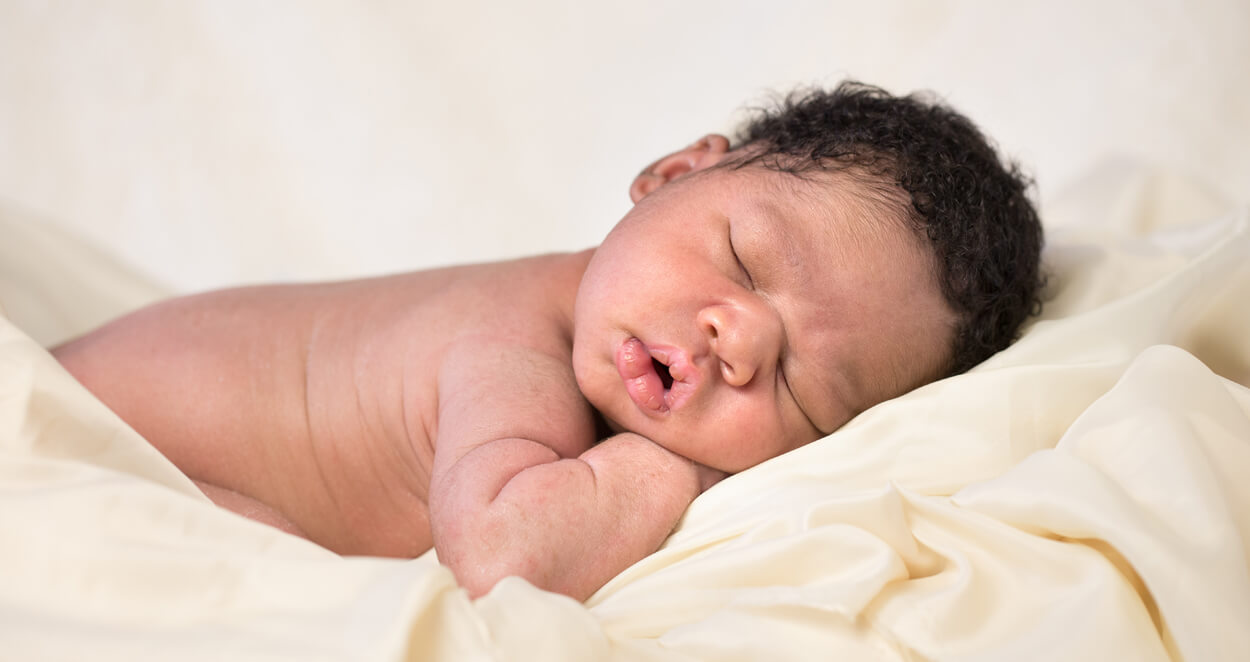Your new baby from head, shoulders, knees to toes

7 Jul 2019
After living in a womb for around nine months, your little one needs some time to adjust to the outside world. Here are a few tips to help your new bundle of joy while she or he adjusts to life outside your womb.
Dry Skin
The picture we often have of newborn babies is of them having silky soft skin. Well, that’s almost never the case in the first couple weeks of your newborn being in the world. While in the womb, the baby is covered in a thick coating called vernix, which protects the baby’s skin from amniotic fluid. Once the vernix is gone, after being wiped off after birth, your baby will likely shed the outer layer of their skin. Dryness and peeling after birth is normal and the flaking skin will go away on its own after time.
Keep in mind that your baby’s natural oil production hasn’t stabilised yet, and you may be tempted to use creams and lotions for this, but avoid this where possible as these creams and lotions disturb the body’s natural process of oil production if used too early. Simply keep baby’s skin clean by wiping them down with a clean, damp cloth or sponge.
Small pimples
Your tiny baby might break out in small pimples, because of the hormones they receive through breastfeeding. Keeping your baby’s face clean and dry will help reduce these breakouts, but they will eventually disappear on their own.
Tiny white bumps on the nose, chin or cheeks are not pimples – these bumps are called milia and are also very common in newborns. They are tiny skin flakes that become trapped in the baby’s pores. These will usually disappear after a few weeks or months, once your baby’s skin gets used to its new environment.
Cold hands and feet
Your baby’s little hands and feet will likely feel cold and may look bluish in colour. This is because the circulation in your baby hasn’t fully developed yet. Cold hands and feet do not always mean your child is cold – they simply need to adjust to a new environment.
Belly care
The umbilical cord stump usually falls off after 8 – 12 days and may bleed and be a little smelly. Make sure to keep your baby’s belly clean and dry, both before and after the umbilical cord stump falls off. The stump does not have nerves, so it won’t hurt your baby when cleaning it.
Losing weight
Most newborns will lose weight in the first 3 – 4 days after birth. It takes a while for your body to produce a healthy flow of breast milk, and your baby will usually start to gain weight within a couple of weeks. It is important to get your midwife to weigh your baby frequently to make sure that everything is normal.
Producing breast milk
Both baby boys and girls have mammary glands (milk-producing glands). If you notice that your newborn is producing milk themselves, this is simply caused by the hormones that they receive during breastfeeding. This is rare but nothing to worry about and you should continue breastfeeding as normal.
Living in a womb is very different to living in the outside world, so it’s going to take some time for your baby’s body to adjust. Many things that look strange are completely normal but if something does not feel right, trust your parental instincts and consult a medical professional.